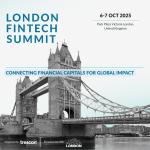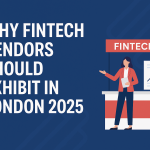Credit is tight. Banks are cautious. And while interest rates may be levelling out, access to capital is still far from easy. Traditional lenders are playing it safe. FinTech firms are not.
Across the UK, consumers and small businesses are looking for faster decisions, fairer terms, and smarter models. FinTech is answering with speed, intelligence, and inclusion. In 2025, it’s not just about lending more. It’s about lending better.
Here’s how FinTech is stepping up.
-
Credit scoring gets smarter
Credit scores haven’t kept up with the times. Traditional lenders still rely on backward-looking metrics, often excluding people with thin files or non-traditional incomes. FinTech is rewriting the rules.
UK-based Abound, an AI-powered lender, raised £250 million to scale its credit offering using open banking data — not outdated scoring. This approach factors in income patterns, spending habits, and affordability in real time.
Meanwhile, the Bank of England found that open banking is driving new relationships between lenders and borrowers, with 19% of FinTech entrants using customer data to offer better credit terms.
Smarter inputs mean faster, more accurate lending decisions — and access for people previously shut out.
-
SME lending gets its moment
Small and mid-sized businesses (SMEs) are the backbone of the UK economy, yet they’ve long struggled with clunky applications and slow decisions from big banks. FinTech is fixing that.
In 2024, Funding Circle reported a 47% year-on-year increase in SME lending, issuing £1.9 billion in loans and turning a profit for the first time since its IPO (source). Start-ups like iwoca are offering fast, flexible working capital, backed by a £270 million debt raise to meet growing demand for loans of £100,000 or more.
These platforms don’t rely on physical assets. They underwrite against cash flow, real-time data, and future potential, giving UK SMEs the breathing room they need to grow.
-
BNPL grows up
Buy Now, Pay Later once meant fast fashion and checkout upsells. In 2025, it’s pivoting to utility.
UK players like Klarna, Zilch, and Monzo Flex are offering regulated, short-term credit for essentials — from transport to groceries — under FCA oversight. The wild west days are over. Compliance, transparency, and consumer protection are now built in.
As interest in credit for everyday spending grows, BNPL is becoming less about indulgence and more about flexibility.
-
Embedded credit at checkout
Embedded finance isn’t just for payments. Credit is now showing up exactly when and where people need it, right at the point of sale.
In the UK, retail platforms and B2B marketplaces alike are integrating instant financing offers directly into the checkout flow. That means a freelancer buying a laptop or a café restocking inventory can access financing in seconds, without filling out a form.
It’s frictionless, fast, and already driving higher conversion rates for merchants, and broader access for borrowers.
-
Infrastructure over interfaces
Fancy apps don’t fix broken lending. Infrastructure does.
Behind the scenes, FinTechs are building the systems that matter: orchestration layers, KYC stacks, decision-making engines, and compliance-ready APIs. These aren’t just technical solutions. They’re the backbone of a faster, fairer lending economy.
UK platforms specialising in credit infrastructure — like Railsr, Griffin, and Credit Kudos (now part of Apple) — are seeing strong investor backing as firms look to scale securely.
Why London still leads
London’s ecosystem brings all the pieces together: regulation, capital, talent, and collaboration. FinTech founders don’t just meet regulators here. They co-design with them. That’s rare.
The London FinTech Summit 2025 will spotlight these shifts, from embedded lending to AI-powered underwriting, with the people actually building them.
If you want real insight, real signals, and real momentum, this is where the credit conversation continues.
Register now: https://londonfintechsummit.com/get-involved/



